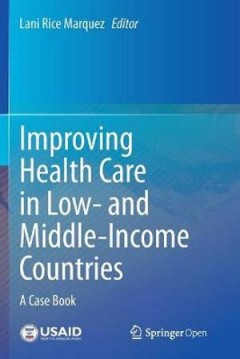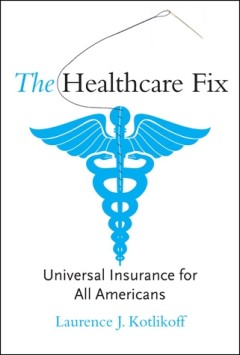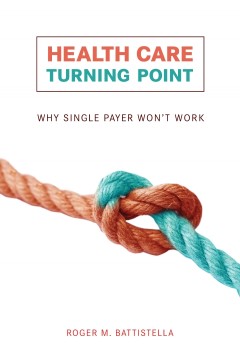Filter by

Epistemic Justice in Mental Healthcare = Recognising Agency and Promoting Vir…
This open access book explores epistemic justice in mental healthcare, bringing together perspectives from psychologists, psychiatrists, philosophers, activists, and lived experience researchers. Through eight chapters, authors identify threats to the agency of people who hear voices, experience depression, have psychotic symptoms, live with dementia, are diagnosed with personality disorders, a…
- Edition
- 1
- ISBN/ISSN
- 9783031688812
- Collation
- XVII, 160 hlm; ill., lamp.,
- Series Title
- -
- Call Number
- -

Improving Health Care in Low- and Middle-Income Countries
This open access book is a collection of 12 case studies capturing decades of experience improving health care and outcomes in low- and middle-income countries. Each case study is written by healthcare managers and providers who have implemented health improvement projects using quality improvement methodology, with analysis from global health experts on the practical application of improvement…
- Edition
- 1
- ISBN/ISSN
- 9783030431129
- Collation
- XVI, 245 hlm; ill., lamp.,
- Series Title
- -
- Call Number
- -

Advances in Pharma Business Management and Research
This open access book presents a unique collection of practical examples from the field of pharma business management and research. It covers a wide range of topics such as: 'Brexit and its Impact on pharmaceutical Law - Implications for Global Pharma Companies', 'Implementation of Measures and Sustainable Actions to Improve Employee's Engagement', 'Global Medical Clinical and Regulatory Affair…
- Edition
- 1
- ISBN/ISSN
- 9783030359188
- Collation
- X, 85 hlm; ill., lamp.,
- Series Title
- -
- Call Number
- -

Vulnerability Revisited
Open access. This open-access book discusses vulnerability and the protection-inclusion dilemma of including those who suffer from serious poverty, severe stigma, and structural violence in research. Co-written with representatives from indigenous peoples in South Africa and sex workers in Nairobi, the authors come down firmly on the side of inclusion. In the spirit of leaving no one behind in …
- Edition
- 1
- ISBN/ISSN
- 978-3-031-57896-0
- Collation
- -
- Series Title
- SpringerBriefs in Research and Innovation Governance
- Call Number
- XIX, 145

Vulnerability Revisited
Open access. This open-access book discusses vulnerability and the protection-inclusion dilemma of including those who suffer from serious poverty, severe stigma, and structural violence in research. Co-written with representatives from indigenous peoples in South Africa and sex workers in Nairobi, the authors come down firmly on the side of inclusion. In the spirit of leaving no one behind in …
- Edition
- 1
- ISBN/ISSN
- 978-3-031-57896-0
- Collation
- -
- Series Title
- SpringerBriefs in Research and Innovation Governance
- Call Number
- XIX, 145

How Can we Use Simulation to Improve Competencies in Nursing?
This open access book offers an overview of theories related to simulation and describes different simulation areas within nursing. It illustrates how simulation may be used in different levels in professional education. The book deals with the role of the Simulation Facilitator, peer learning and the use of Virtual Reality in simulation. It provides new insights and paths to the development of…
- Edition
- 1
- ISBN/ISSN
- 978-3-031-10399-5
- Collation
- -
- Series Title
- -
- Call Number
- XII, 129

How Can we Use Simulation to Improve Competencies in Nursing?
This open access book offers an overview of theories related to simulation and describes different simulation areas within nursing. It illustrates how simulation may be used in different levels in professional education. The book deals with the role of the Simulation Facilitator, peer learning and the use of Virtual Reality in simulation. It provides new insights and paths to the development of…
- Edition
- 1
- ISBN/ISSN
- 978-3-031-10399-5
- Collation
- -
- Series Title
- -
- Call Number
- XII, 129

Chaos and Organization in Health Care
Two leading physicians' prescription for solving our health care problems: organizing the fragmented system that delivers care.One of the most daunting challenges facing the new U.S. administration is health care reform. The size of the system, the number of stakeholders, and ever-rising costs make the problem seem almost intractable. But in Chaos and Organization in Health Care, two leading ph…
- Edition
- -
- ISBN/ISSN
- 9780262259033
- Collation
- 1 online resource (xv, 278 pages) :illustrations
- Series Title
- -
- Call Number
- -

The Healthcare Fix: Universal Insurance for All Americans
A simple, straightforward, and foolproof proposal for universal health insurance from a noted economist.The shocking statistic is that forty-seven million Americans have no health insurance. When uninsured Americans go to the emergency room for treatment, however, they do receive care, and a bill. Many hospitals now require uninsured patients to put their treatment on a credit card which can sa…
- Edition
- -
- ISBN/ISSN
- 9780262277549
- Collation
- 1 online resource (116 pages)
- Series Title
- -
- Call Number
- -

Health care turning point: Why single payer won't work
In the battle over health care reform we can try to fashion new policies based on old ideas—or we can acknowledge today's demographic and economic realities. In Health Care Turning Point, health policy expert Roger Battistella argues that the conventional wisdom that dominates health policy debates is out of date. Battistella takes on popular misconceptions about the advantages of single-paye…
- Edition
- -
- ISBN/ISSN
- 9780262265966
- Collation
- 1 online resource (xx, 165 pages)
- Series Title
- -
- Call Number
- -
 Computer Science, Information & General Works
Computer Science, Information & General Works  Philosophy & Psychology
Philosophy & Psychology  Religion
Religion  Social Sciences
Social Sciences  Language
Language  Pure Science
Pure Science  Applied Sciences
Applied Sciences  Art & Recreation
Art & Recreation  Literature
Literature  History & Geography
History & Geography